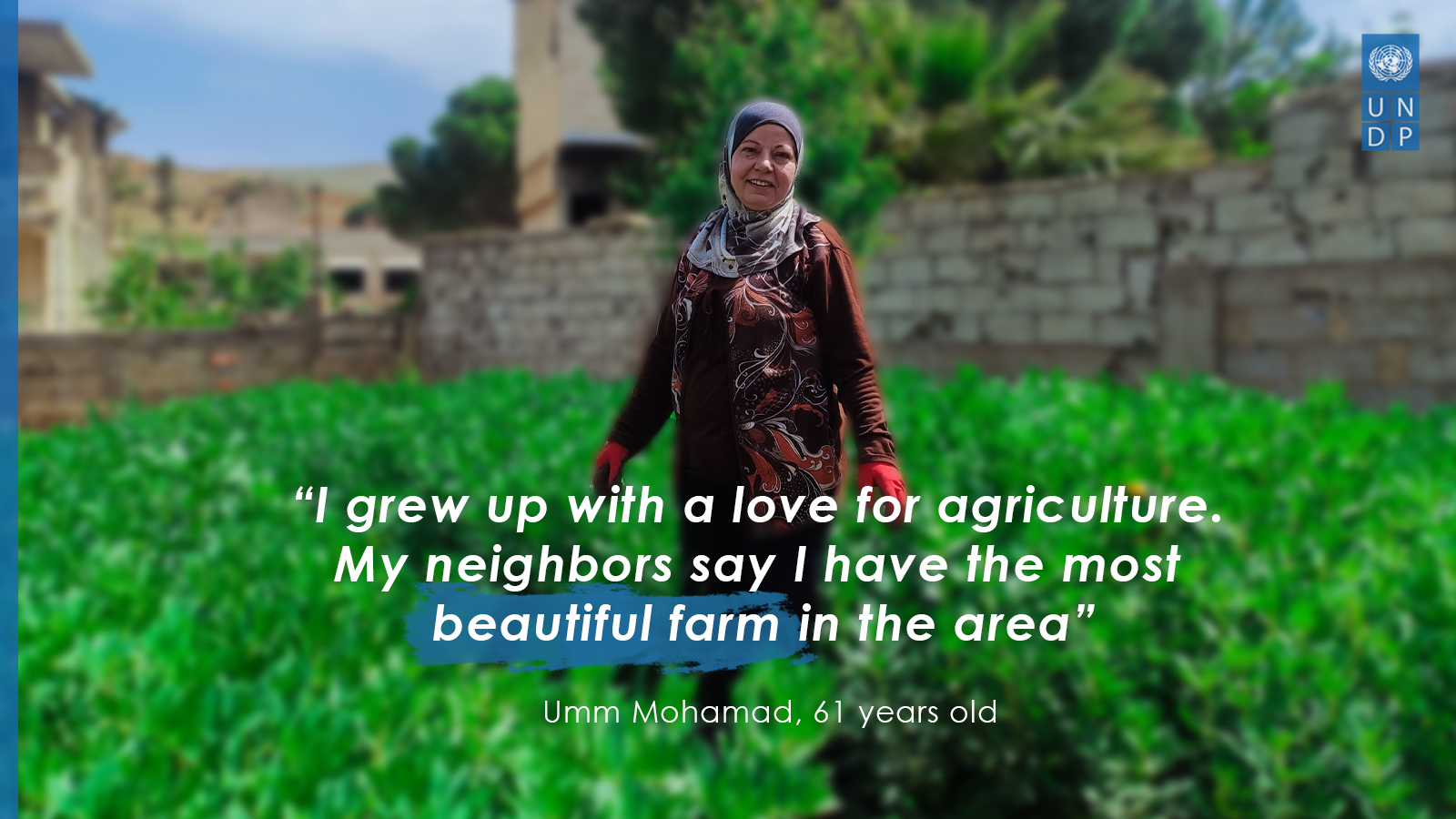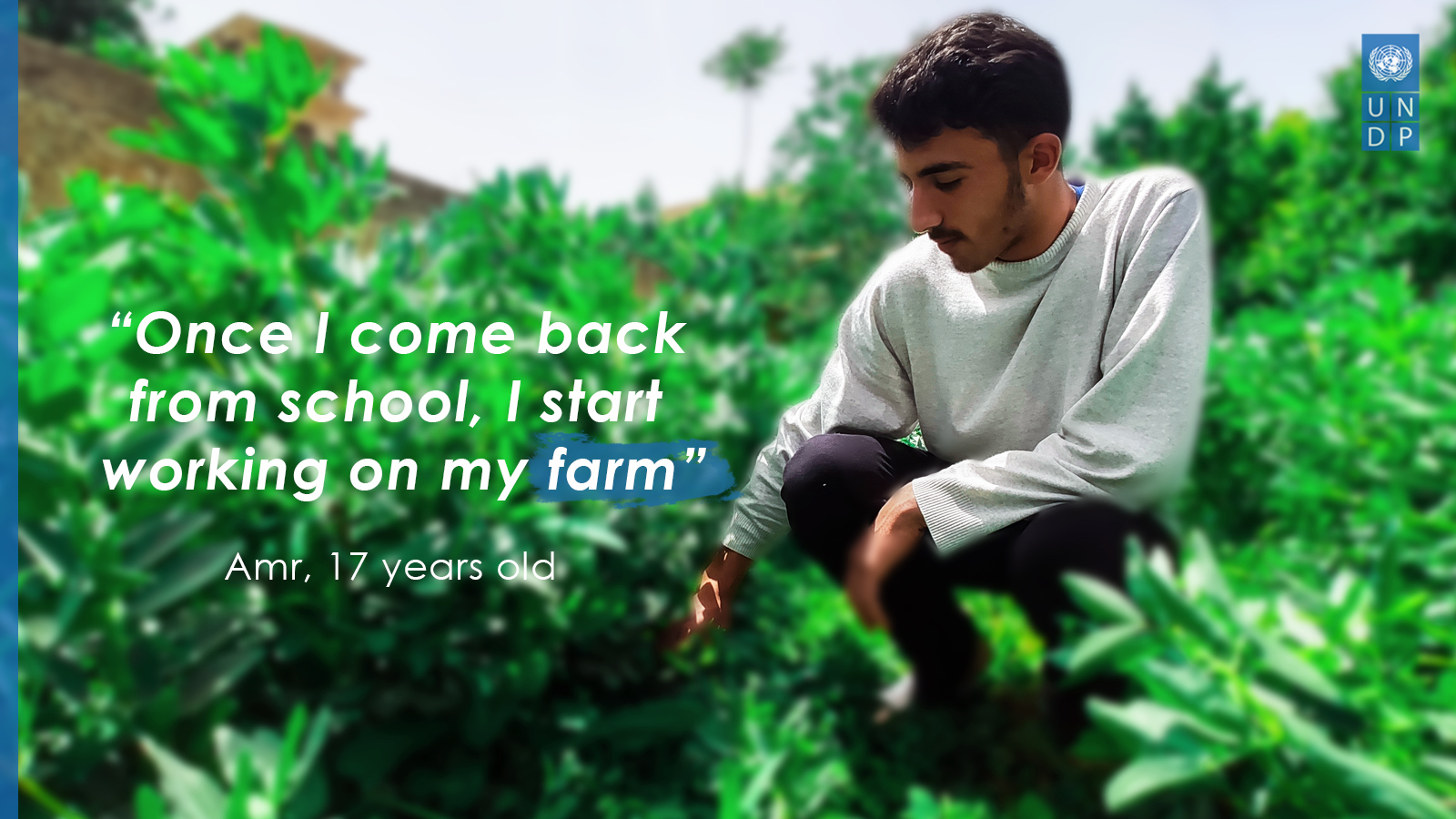Promoting sustainable agriculture to support vulnerable farmers in Syria sustain decent livelihoods and improve food security
Farming in Harmony with Nature
June 5, 2022

Agriculture is a cornerstone of the economy in Syria. Today, agriculture and food production are at a record low with more than half of the population in Syria are unable to meet their daily food needs. Agricultural production in Syria faces a myriad of challenges related not only to more than ten years of devastating crisis and consequent displacement, but also to the impacts of drought and other effects of climate change. All which had a profound negative impact on fragile rural communities.
In 2020, the United Nations Development Programme (UNDP) introduced regenerative agriculture to vulnerable small farmers in Rural Damascus. Regenerative agriculture mimics the processes found in natural ecosystems, which eventually help increase soil fertility, and improve efficient and sustainable water consumption.
Adopting regenerative agricultural practices is among the least costly and most immediate actions that can help mitigate the effects of climate change. It captures substantial amounts of carbon from the air and stores it in the soil, improving the quality of water, air, and soil, and increasing farm production of nutrient-dense foods that are free from chemical contaminants. Regenerative farm systems are designed to work in harmony with nature, while also maintaining and improving economic sustainability.

Inayat, 61 years old, or as she is known in her area in Zabadani, Umm Mohamad, is applying what she has learned in the UNDP-run regenerative agriculture training. She hopes to be self-sufficient in her small farm production to help support her family of 5 children and grandchildren.
“I grew up with a love for agriculture. My neighbours say I have the most beautiful farm in the area. I learned about regenerative agriculture and planted different kinds of vegetables in my farm.” says Umm Mohamad.
The project aims to introduce Syrian farmers to sustainable food production, and to support the development of local systems that will eventually lead to more stable and sustainable livelihoods for the most vulnerable groups while protecting and preserving natural resources and contributing to national food security.

Amr, 17 years old from Rural Damascus started following the regenerative agriculture methods in his small farm after attending the regenerative agriculture training.
“Once I come back from school, I start working on my farm. I was self-sufficient with this year's harvest. I’m confident I will be able to start selling my produce next season.” says Amr.
By promoting and supporting farmers, especially female-headed households to use regenerative agriculture, farmers can achieve multiple benefits that can help them improve the quality and quantity of their produce, ultimately leading to more productive farms and healthy communities and economies.
Thanks to generous support from our partners, UNDP continues to support the resilience of the most vulnerable to respond to rising poverty and food insecurity. We hope to extend this experience to more farmers and other villages in Rural Damascus and other governorates across Syria.

 Locations
Locations


